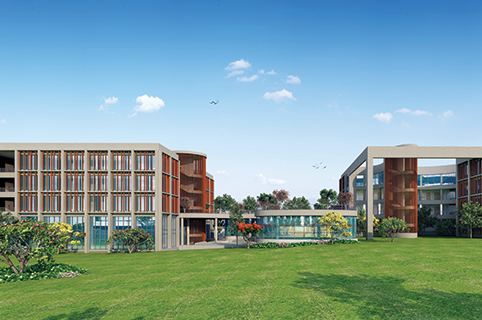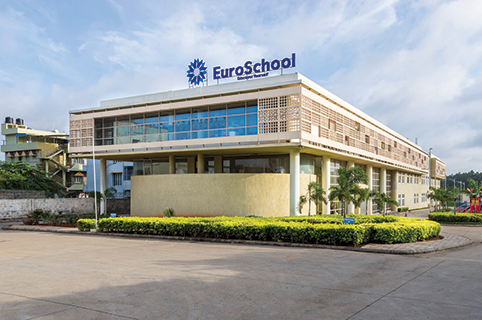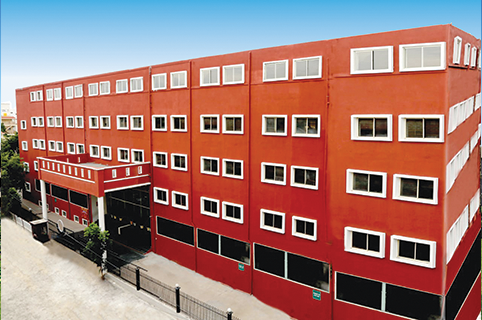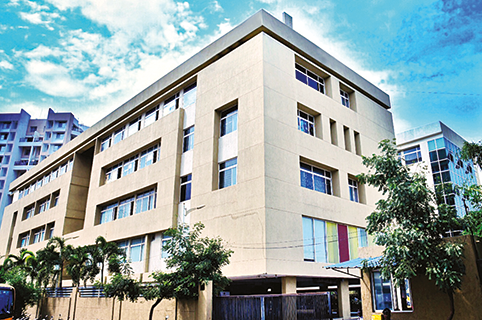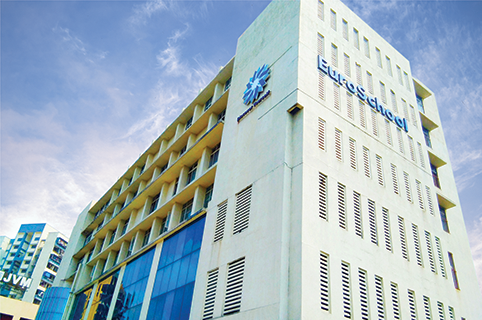Best Higher Secondary Schools in India
For Class 11 and Class 12 students, higher secondary education marks a critical juncture, often setting the trajectory for university and future careers. Hence, finding a school that equips students adequately is crucial. Top schools not only have a rich curriculum but also offer robust support for competitive examinations, which are gateways to premier institutes in India. Experienced faculty, modern teaching aids, and individual attention become pivotal at this stage. Higher Secondary schools in India are responsible for empowering futures through excellence in education and providing a nurturing environment that fosters academic brilliance and holistic development for children.
Beyond academics, schools that foster extracurricular involvement, leadership opportunities, and character-building initiatives ensure that students are well-rounded. Moreover, many schools in India now offer international curriculums for higher secondary, catering to students with overseas aspirations. When evaluating options, consider how the school balances rigorous academics with nurturing soft skills, critical thinking, and resilience – elements indispensable in today's dynamic world.
ICSE & CBSE schools offering higher secondary education in India
Higher Secondary Schools in Bangalore
Higher Secondary Schools in Pune
Higher Secondary Schools in Mumbai
Why Choose EuroSchool for Your Child?
EuroSchool is part of Lighthouse Learning, one of India's leading Early Childhood & K-12 Education Groups. Our Group is committed to building a robust foundation & new-age skills in future generations with student-centred goals that are aligned over our network of over 1,400 Pre-Schools and 52 Schools. Lighthouse Learning Group delivers the joy of learning to over 170,000 children every day and employs a talented workforce of over 10,000 people across its offices and campuses located in Mumbai, Bengaluru, Pune, and Hyderabad. Our education system is tailored to help children come out with flying colours. We also provide a variety of personal well-being programs such as ARGUS, ASPIRE, Centre Of Wellbeing, Cerebrum and more that aim at fostering a safe space for growing children. EuroSchool offers education at all levels and with equal priority, starting with nursery admission and continuing through junior and senior kindergarten, primary, secondary, and higher secondary schools.
EuroSchool Higher Secondary Curriculum
EuroSchool offers a contemporary approach to higher secondary education. Rooted in modern pedagogy while respecting Indian educational traditions, our curriculum is tailored to equip students for both national and global challenges. At the higher secondary level, we align with recognised Indian boards like CBSE or ICSE. The curriculum, while adhering to these boards, is enriched with interactive learning methods, ensuring students grasp fundamental concepts and can apply them practically. The blend of traditional classroom teaching with digital tools caters to the varied learning styles of today's generation. Beyond core academics, EuroSchool places a strong emphasis on holistic development for conciseness. Their 'Balanced Schooling' philosophy ensures that students are engaged in co-curricular and extracurricular activities, ranging from sports to arts and cultural programmes. Such endeavours nurture creativity, teamwork, leadership, and other essential life skills. Moreover, the curriculum incorporates global exposure. With programmes that encourage international interactions and competitions, students gain a broader perspective, preparing them for both national and overseas higher education opportunities. In essence, EuroSchool's higher secondary curriculum isn't just about academic excellence. It's about shaping well-rounded individuals, ready to navigate the complexities of the modern world with confidence and capability.
Higher Secondary School Admission Process in India
The admission process for higher secondary schools (often referred to as +2 or Class 11 and 12) in India varies depending on the school and the board of education it's affiliated with. However, the following is a general overview of the typical admission process:
Announcement of Admission:
Schools generally announce their admission process after the declaration of the Class 10 board exam results, as admission is largely contingent on these scores.
Collection and Submission of Application Forms :
Parents or guardians need to collect the application form either from the school's office directly or download it from the school's official website. Once filled out, the form must be submitted before the deadline, along with any required documents (e.g., Class 10 mark sheet, birth certificate, passport-sized photos, transfer certificate from the previous school).
Eligibility Criteria:
The primary criterion is the student's performance in the Class 10 board exams. Some schools have a cut-off percentage, especially for popular streams like Science or Commerce. Certain schools may also consider the student's performance in lower grades or other achievements.
Stream Selection :
At this level, students typically choose a specific stream: Science, Commerce, Humanities/Arts, or Vocational. The availability of streams and the specific subjects under each will depend on the school.
Entrance Tests/Interviews :
Some schools might conduct entrance tests, especially if they have limited seats or if they're particularly prestigious. Subjects tested usually relate to the stream the student wants to pursue. Some schools may also conduct personal interviews.
Announcement of Selected Candidates :
After evaluating the applications, entrance test results (if applicable), and other criteria, the school releases a list of selected candidates.
Payment of Fees :
Once selected, parents or guardians need to pay the required fees to secure the student's seat.
Orientation and Commencement :
Many schools conduct an orientation session before the academic year begins to familiarise students with the school environment, faculty, and curriculum. EuroSchool Admissions Now Open. Enrol Today for World-Class Education.
Objective & Importance of Higher Secondary Education
Higher secondary education which covers Class 11 and 12 serves as a crucial bridge between basic schooling and specialised university studies in India. Its central objective is to provide students with an opportunity to specialise in their chosen streams, be it Science, Commerce, Humanities, or Vocational, aligning with their future aspirations. It lays the groundwork for university education, ensuring students have the requisite knowledge for their chosen disciplines. Beyond just rote learning, higher secondary education fosters critical thinking and analytical prowess, essential for higher academic pursuits. By delving deeper into specialised subjects, students are better positioned to make informed decisions about their future careers or academic paths.
FAQs about Higher Secondary Schools in India
Which boards offer higher secondary education in India?
The main boards are CBSE (Central Board of Secondary Education), ICSE (Council for the Indian School Certificate Examinations), and various state boards. Additionally, international boards like IB (International Baccalaureate) and IGCSE (International General Certificate of Secondary Education) are also available in some schools.
How is higher secondary different from secondary education?
Higher secondary education allows students to specialise in specific streams (Science, Commerce, Humanities/Arts, Vocational) and provides in-depth knowledge, preparing them for university or professional courses.
What are the common streams offered in higher secondary schools?
The common streams are Science, Commerce, and Humanities/Arts. Some schools also offer Vocational streams tailored to specific careers.
Do higher secondary schools in India prepare students for competitive exams?
Many schools offer special coaching and guidance for competitive exams like JEE, NEET, CLAT, etc., which are entrance tests for various professional courses in India.Can students change their stream after Class 11?
While it's possible in some schools, it depends on the school's policies, the student's performance, and seat availability in the desired stream.Do higher secondary schools in India offer extracurricular activities?
Yes, most schools emphasise holistic development, offering various extracurricular activities like sports, arts, debate, and more./
Can international students enrol in higher secondary schools in India?
Yes, many schools accept international students, though the admission process and criteria might vary.


